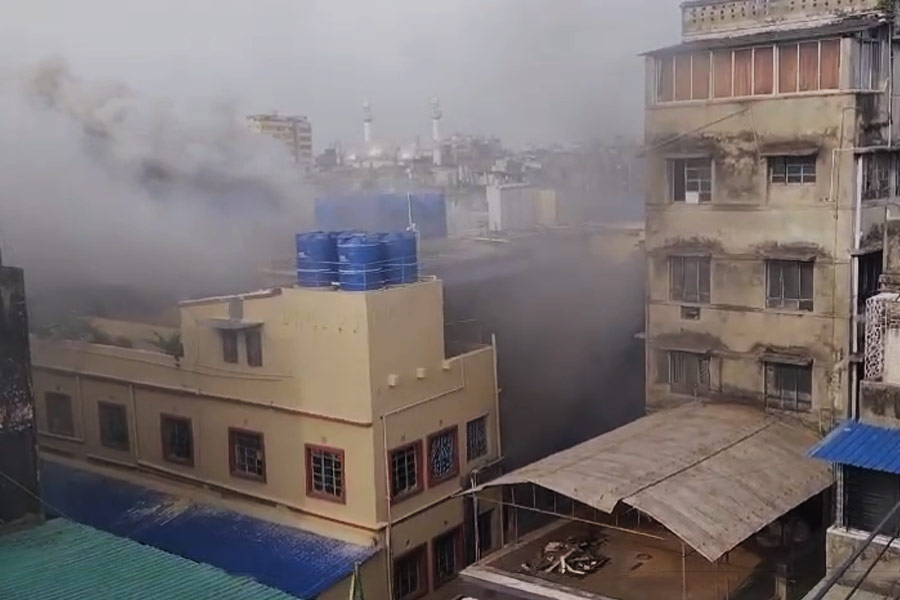Fire accidents in India have often proven to be devastating, causing irreparable damage to lives and property. Be it the fire in a Delhi factory or the one in Rajkot, the list of such accidents is distressingly long. These incidents expose the inadequacies in India’s fire safety regulations.
The statistics are harrowing. Between 2010 and 2014, India recorded 113,961 deaths due to fire accidents, averaging 62 deaths per day. The primary cause of these fires was electric short circuits, which accounted for about 7,743 deaths in that period. More recent data offer an equally grim picture. According to a report by the National Crime Records Bureau, fire-related incidents claimed an average of 35 lives per day from 2016 to 2020.
India’s fire safety regulations are inadequate and poorly enforced. The National Building Code of India provides comprehensive guidelines for fire safety, but these are rarely implemented effectively. The NBC mandates fire-safety measures for high-rise buildings, including proper evacuation systems and fire-safety certificates. However, the reality is that many buildings lack even basic provisions of fire safety.
The Delhi Fire Prevention and Fire Safety Act, 1986 is an example of a legislation that has failed to curb blazes. Despite the Act’s provisions, enforcement remains weak, leading to recurrent tragedies. The National Green Tribunal and other regulatory bodies have repeatedly issued warnings about the potential of fire disasters. Yet, these warnings are often ignored due to bureaucratic inertia, corruption, and the lack of resources.
Fire services across India are severely under-resourced as well. Delhi, with a population of nearly 30 million, has only about 1,700 firefighters, whereas New York City, with a population that is less than half of Delhi’s, has eight times more firefighters.
As per the data presented to Parliament in 2019 by the Union home ministry, there was a deficit of 61% in the number of fire stations, 90% in personnel, and 78% in vehicles. India then had only 3,377 fire stations instead of the required 8,559, approximately 55,000 personnel instead of the necessary half-million, and 7,306 vehicles instead of the required 33,000.
To prevent such tragedies, India needs to overhaul its fire safety regulations and ensure stringent enforcement. Fire safety audits should be made mandatory for all buildings. These audits must be conducted by independent agencies to ensure impartiality. Regular training programmes and workshops on fire safety should also be organised to raise awareness of and prepare citizens and employees for emergencies.
There is also a compelling need to hold property owners and managers criminally liable for fire accidents. The principle of absolute liability, as reaffirmed by the Supreme Court in the Shriram Industries judgment (1986), can serve as a robust legal template for this purpose. Under absolute liability, property owners would be held accountable for any fire incident on their premises irrespective of the precautions they claim to have taken. Further, in the case of National Insurance Company Ltd versus Pavan Sahani (1997), the court highlighted the importance of considering the broader consequences of fire incidents. It ruled that losses proximately caused by fire, including the loss of rent due to a building being sealed after a fire, must be compensated. This judgment underscores the need for a comprehensive approach to fire-related liabilities by going beyond the immediate damages caused by a fire to include all consequential losses.
India’s fire safety crisis demands urgent and comprehensive reform. The legal framework too must evolve to provide swift and fair compensation to the victims of fire accidents. Protracted litigation and inadequate compensation fail to deliver justice to those adversely affected by fire accidents. By adopting a proactive and stringent approach to fire safety, India can prevent the recurrence of such tragic incidents and safeguard the lives and the properties of its citizens.
Basil Gupta is a student at the National Law University, Jodhpur











